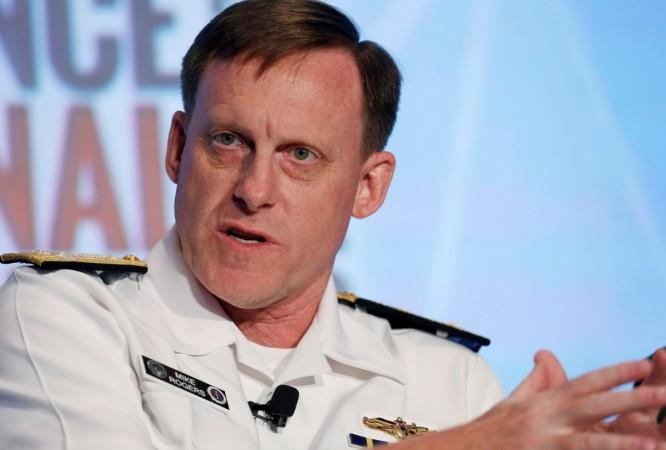
The United States presidential election may be over, but the drama surrounding it refuses to die down. First, people took to the streets and even children walked out of schools to protest against Donald Trump becoming president-elect, and now the National Security Agency chief has said a "nation-state" used WikiLeaks to influence the outcome of the election.
It may be noted that Democratic presidential hopeful Hillary Clinton had, in the run-up to the elections, seen WikiLeaks and its founder Julian Assange making a number of damning allegations against her and her family, like the one that she was secretly funded by backers of the Islamic State group — also known as Islamic State of Iraq and Syria (Isis) or Islamic State of Iraq and the Levant (Isil).
WikiLeaks revelations also seemed to substantiate a claim Republican candidate and billionaire business tycoon-turned-politician Trump had made — that Clinton had received beforehand questions asked during the presidential debates. However, following allegations that Assange had received the evidence against Clinton from Russia, Julian refuted all such claims.
And this was hardly the first or the last time Russia had been named as an involved party in some twist in the US presidential election. The US had officially accused Russia of hacking the computers of the Democratic Party and trying to interfere with the elections. The US had also prepared contingencies over fear that Russia could hack or manipulate the polling process on election day in order to influence the results.
Thus, when NSA director Michael S Rogers said on Tuesday that WikiLeaks had been used by a "nation-state" to influence the election by publishing mails from the Democratic National Convention and the campaign of Clinton, the needle of suspicion swung towards Russia, even though Rogers did not name the country.
He said: "There shouldn't be any doubt in anybody's minds, this was not something that was done casually, this was not something that was done by chance, this was not a target that was selected purely arbitrarily. This was a conscious effort by a nation-state to attempt to achieve a specific effect."





!['Lip lock, pressure, pyaar': Vidya Balan- Pratik Gandhi shine in non-judgmental infidelity romcom Do Aur Do Pyaar [ Review]](https://data1.ibtimes.co.in/en/full/797104/lip-lock-pressure-pyaar-vidya-balan-pratik-gandhi-shine-non-judgmental-infidelity-romcom.jpg?w=220&h=138)







